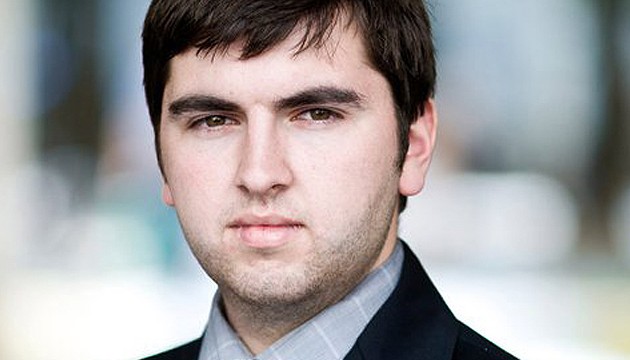
Continuing Human Rights Abuses Force Chechens to Flee to Europe
Continuing Human Rights Abuses Force Chechens to Flee to Europe
The massive relocation of North Caucasians to Europe is still under way, producing concerns among both the regional authorities in the North Caucasus and Western European countries. While in 2000, at the beginning of the second Chechen war, only ethnic Chechens were found among the refugees, today a significant percentage of them are from Ingushetia and Dagestan. This is understandable since the situation in these republics is highly volatile, with violence and human rights abuses widespread (www.hrw.org/node/104533). Rights organizations in the West remain deeply concerned about kidnappings and disappearances of people in the North Caucasus.
Ethnic Chechens remain the largest group of refugees from the North Caucasus. According to unconfirmed reports, about 60,000 people left Chechnya for Europe in 2010–2012 alone. This figure has spread throughout the social networks on the Internet, with a reference to a Russian Foreign Ministry internal report. It is a damning figure, given the fact that about 100,000 Chechens already lived in Western Europe before this period. The Chechen diaspora in France alone may comprise up to 30,000 people. Large Chechen diasporas are found in Austria (25,000 people), in Belgium (17,000 people), Germany (12,000 people) and so on. Even in Denmark, there are already over 1,000 Chechens (https://chechenews.com/world-news/breaking/4511-1.html). A large Chechen diaspora in Norway is made up of tens of thousands of people.
Western Europeans are concerned about the fact that Chechens are Muslims and that there might be radicals among the Chechen refugees. However, the consensus appears to be that a vast majority of these Chechens are adherents of moderate Islam (www.mo.be/artikel/de-meeste-tsjetsjenen-zijn-gematigde-moslims). Still, there have been reports in the European press about the arrest of radicals. On March 1, French and Spanish police arrested several Chechens in the Parisian suburbs. The suspects may have been linked to a terrorist organization that was broken up last August in the city of La Línea de la Concepción in southern Spain (https://top.rbc.ru/society/01/03/2013/847608.shtml). Meanwhile, European authorities are increasingly turning down North Caucasian refugees’ applications for refugee status. According to the newspaper Die Presse, applicants for refugee status for many years were mostly Chechens; and if before the number of favorable decisions reached 94 percent, since 2011 this number has fallen to 31 percent (https://kavkasia.net/Russia/2013/1361765164.php).
Certainly, not all the refugees have actually been persecuted for their separatist ideas or fighting for justice. In fact, a significant percentage of the applicants for refugee status are people who want to provide a better future for their children. Overall, this makes it harder for Chechens to receive refugee status. Thus, Germany granted refugee status only to 240 Chechens in 2010. Russian human rights activists object to these figures and argue that Germany should have accepted more Chechen refugees (www.dw.de, November 15, 2011).
The Chechen authorities in Grozny have tried to prevent Chechens from emigrating to the West and in turn have launched a campaign to discredit Chechen refugees living in Europe (www.inosmi.ru/europe/20111018/176200699.html). The emissaries of Grozny travel to Europe to try and convince European governments that the situation in the North Caucasus has normalized (www.grozny.mid.ru/news.html). Moreover, the Chechen authorities would like to establish a network of official representatives in Western countries but have been unable to implement their plans due to opposition by European countries (www.checheninfo.ru/16633-vstrecha-s-predstavitelem-glavy-chechenskoy-respubliki-vo-francii.html). This explains why not a single pro-Russian Chechen center exists in Europe, while dozens of cultural and political centers that support Chechen independence have been in place for a long time now. These centers invariably upset the Russian authorities. For example, for the past ten years, without interruption, a group of activists have stood in front of the Russian Embassy in Paris every Monday after 6 p.m. to demand that the Russian government respect human rights in Chechnya.
The worsening climate for Chechen refugees has resulted in a number of deportations back to Russia from such countries as Austria (https://kavkasia.net/Russia/2013/1361765164.php). Such actions by the Austrian authorities understandably alarm the Chechen community that stages public protests (https://kavkasia.net/Russia/2013/1362285314.php). To justify themselves, the authorities in Austria have tried to portray Chechens as people who adapt poorly to the Western lifestyle. Svetlana Gannushkina, a well-known Russian human rights campaigner, rejects this view as a blatant lie. In fact, Chechen refugees integrate into Western society quite quickly. Thousands of Chechens are currently studying at Europe’s best universities. A new generation of Chechen scholars who received their doctorate degrees in the West are writing books, create works of art and so on. Chechen athletes are becoming prominent in Europe as well: eight Chechens were winners at the classical wrestling championships in France last month <>. Last year, for the first time in Belgium, a Chechen, Adam Isaev, was elected to the city council of Berlaar from the Christendemocraten & Vlaams party (https://vaydahar.eu/vaydahar/belgiycy-vybrali-chechenca). Thus Chechens have made significant strides over the last decade toward integrating into Europe. The result of this integration will be felt in the near future as the new Chechen intellectuals that settled in Europe acquire more influence. The very fact that over ten percent of the total population of Chechens now resides in Europe makes the future of the Chechen nation more secure and hopeful.
Thus, the relocation of Chechens to Europe remains as relevant to Chechnya as it was during the active military campaign at the start of 21st century. According to the results of a survey among students in Chechnya, two-thirds of young people do not see their future in the republic and would prefer to leave it to live abroad (www.kavkaz-uzel.ru/articles/218032/). These attitudes vividly illustrate the fact that the real situation in the region still resembles a war zone and continues to force families to escape the never-ending human rights abuses that reign in Chechnya and elsewhere.


